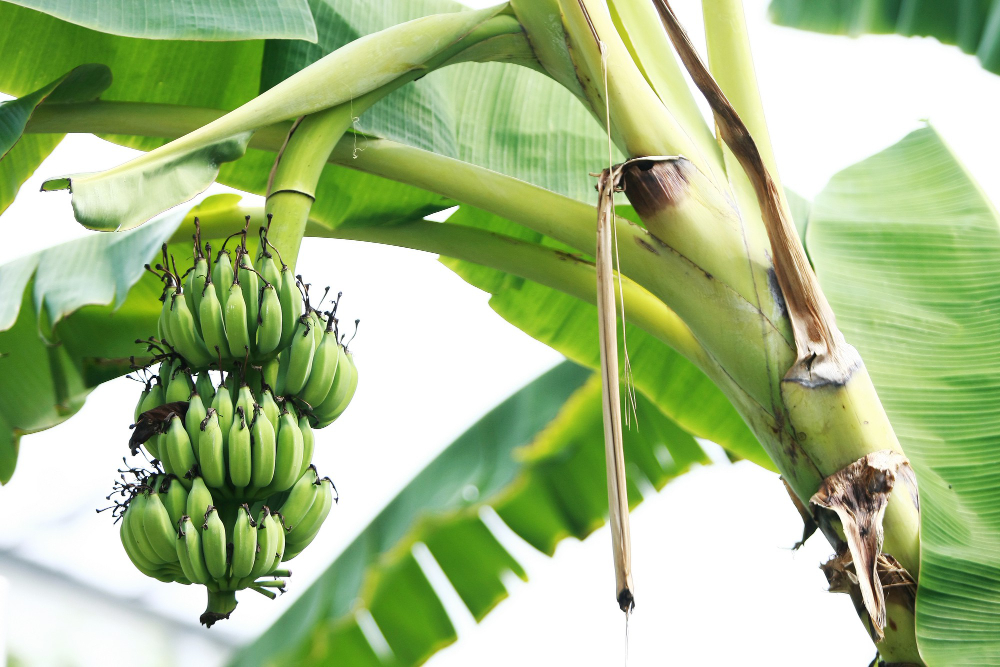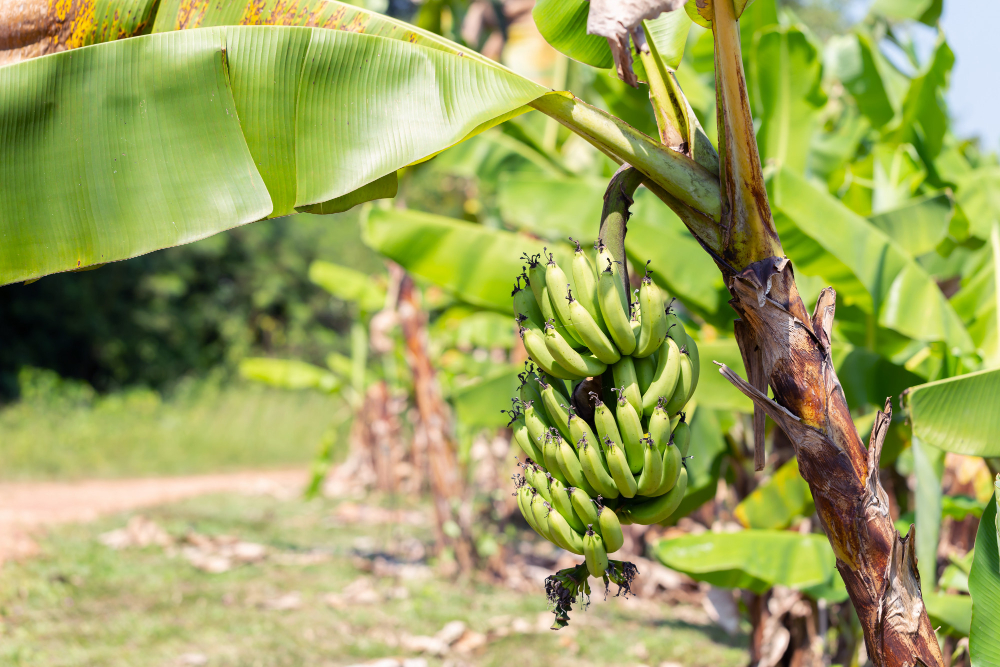Atulya Vanam's Mighty Versatile Banana Tree: Unveiling Nature's Healing Abundance Across Healing Traditions
The Banana tree (Musa spp.) stands as a symbol of sustenance and versatility, offering a wide range of therapeutic benefits through its leaves, fruit, bark, roots, and flowers.
. In this comprehensive blog, we embark on an enlightening journey to explore the diverse uses of the Banana tree across various medical systems, including Modern Medicine, Ayurveda, Unani, Homeopathy, Siddha, and its multifaceted applications. Additionally, we delve into the captivating varieties of bananas available in India.
Medicinal Value
Modern Medicine:
Fruit (Banana): Bananas are celebrated for their potassium content, contributing to heart health, muscle function, and overall well-being.
Dietary Fiber: Bananas provide dietary fiber, promoting digestive health and regular bowel movements.
Ayurveda:
Fruit (Banana): Ayurveda values bananas for their sweet taste and their ability to balance vata and pitta doshas.
Banana Flower: Banana flowers are used in Ayurvedic practices to support menstrual health and manage digestive concerns.
Unani:
Fruit (Banana): Unani recognizes bananas as a source of nourishment, appreciated for their nutritional value.
Homeopathy:
Fruit (Banana): Bananas may be included in homeopathic remedies targeting specific symptoms or health concerns.
Siddha:
Fruit (Banana): In Siddha medicine, bananas are believed to enhance digestion and vitality.
General Uses
Nutrient-Rich Snack: Bananas are a convenient and energy-boosting snack, rich in vitamins and minerals.
Natural Sweetener: Bananas’ natural sweetness makes them a versatile addition to smoothies, desserts, and baked goods.
Leaves for Serving: Banana leaves are used as natural plates or serving vessels in various cuisines.
Skin and Haircare: Banana extracts and mashed fruit are used in skincare and haircare products for their potential to nourish and moisturize.
Varieties of Bananas in India
Cavendish Banana: Known for its mild flavor and elongated shape, the Cavendish Banana is a popular commercial variety.
Robusta Banana: Recognized for its sturdy texture and larger size, Robusta Banana is often used for cooking and frying.
Nendran Banana: Characterized by its distinct angular shape and starchy texture, Nendran Banana is favored for culinary purposes.



More about Banana
Banana trees (Musa spp.) are captivating and versatile plants with a plethora of extraordinary qualities. Here are some intriguing facts about banana trees:
- Ancient Cultivation: Bananas have been cultivated for thousands of years and are believed to be one of the oldest cultivated plants.
- Global Staple: Bananas are a staple food in many parts of the world, providing essential nutrients and energy.
- Variety Diversity: There are numerous banana varieties, each with distinct flavors, colors, and sizes.
- Nutrient-Rich: Bananas are a rich source of vitamins (particularly vitamin C and B6), minerals (such as potassium and magnesium), and dietary fiber.
- Energy Boost: Bananas are a quick and natural source of energy due to their carbohydrate content.
- Portable Snack: Bananas come in their own natural packaging, making them a convenient and mess-free on-the-go snack.
- Gut Health: The dietary fiber in bananas supports digestive health and can aid in regular bowel movements.
- Culinary Versatility: Bananas are used in a variety of culinary applications, from fresh consumption to baking, smoothies, and savory dishes.
- Cultural Significance: Bananas have cultural and ritual significance in many societies, often used in religious ceremonies and celebrations.
- Cultural Symbols: Bananas are often associated with happiness, fertility, and prosperity in various cultures.
- Companion Plants: Banana plants can provide shade and protection for other crops growing underneath them.
- Leaf Utilization: Banana leaves are used as plates, wrappers, and cooking vessels in various cuisines.
- Non-Fruit Uses: Banana plants have versatile uses beyond their fruits, including in fiber production, papermaking, and handicrafts.
- Traditional Medicine: In some cultures, different parts of the banana plant, such as the flowers and roots, are used in traditional remedies.
- Global Cultivation: Bananas are grown in tropical and subtropical regions around the world, contributing to global food security.
- Biodiversity: The genetic diversity of bananas is essential for maintaining resilient and disease-resistant crops.
- Landscape Beauty: Banana plants add lushness and a tropical ambiance to landscapes and gardens.
- Banana Plantations: Commercial banana plantations are sprawling and visually impressive, showcasing rows of banana bunches.
These extraordinary facts underscore the cultural, culinary, and nutritional significance of banana trees. From their diverse varieties to their global cultivation, banana trees continue to be celebrated for their role in both local traditions and the world’s food supply.
Conclusion
The Banana tree, a beacon of nourishment and adaptability, transcends its role as a bearer of fruit. Its leaves, fruit, bark, roots, flowers, and diverse applications intermingle with a rich tapestry of medical systems and cultural practices. From Ayurveda’s ancient wisdom to modern medical affirmation, the Banana tree’s virtues flourish. By embracing the harmony of traditional insight and contemporary exploration, we unveil the countless ways in which the Banana tree enriches our lives—nurturing not only our bodies but also our cultural heritage and the thriving vitality of our environment.
